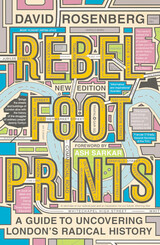
This bold book challenges a contemporary consensus on the titanic figure of Oliver Wendell Holmes. Holmes is the acknowledged source of twentieth-century tort law, but David Rosenberg takes sharp issue with the current portrayal of Holmes as a legal formalist in torts who opposed the notion of strict liability and dogmatically advocated a universal rule of negligence, primarily to subsidize industrial development. Marshaling the evidence found in Holmes' classic The Common Law and other writings, the author reveals that the opposite was the case, and, in the process, raises troubling questions about the present state of legal scholarship.
It was Holmes who founded the modern conception and justification of strict liability. He envisioned an expansive role for strict liability to augment the negligence rule in preventing and redressing injury from industrial activity. This recovery of Holmes' theory of torts provides new insights into the nature of the jurisprudence that launched the American legal realist movement, and also overturns standard interpretations of the history of tort law.
Rejecting the prevailing view that either strict liability or negligence reigned exclusively, Holmes and his contemporaries reconciled the existence of both rules, and advocated reforms of tort law to protect society from the unprecedented hazards of industrial life. The parallel drawn by the book between their response and ours in grappling with the novel problem of mass torts confirms Holmes' belief in the adaptive genius of the common law.

If you visit London, and you’ve only experienced Buckingham Palace, The Tower of London, and The Millennium Wheel, you’ve missed the true essence of London, and its politically-charged, rebellious history. A truly radical response to conservative heritage tours and banal day trips, Rebel Footprints brings to life the history of social movements in England's capital by providing lively commentary, maps, and walking tours you will not find anywhere else.
David Rosenberg transports readers from well-known landmarks to history-making hidden corners, while telling the story of protest and struggle in London from the early nineteenth to the mid-twentieth century.
From the suffragettes to the socialists, from the chartists to the trade unionists: Rosenberg invites us to step into the footprints of a diverse cast of dedicated fighters for social justice. Individual chapters highlight particular struggles and their participants, from famous faces to lesser-known luminaries. Chapters include:
*Writers and Rioters in the Fleet Street Precinct
*Trailblazers for Democracy in Clerkenwell Green
*The Spark of Rebellion in Bow
*Coming in from the Cold: Immigrant Agitators and Radicals in Spitalfields
*No Gods, No Masters: Radical Bloomsbury
*Life on the Boundary: Fighting for Housing in Bethnal Green and Shoreditch
*Stirrings from the South: The Battersea Four
*peaking Truth to Power: Suffragettes and Westminster
*Not Afraid of the Prison Walls: Rebel Women and Men of Poplar
*People's Power in Bermondsey
Rebel Footprints sets London's radical campaigners against the backdrop of the city's multi-faceted development. Self-directed walks pair with narratives that seamlessly blend history, politics, and geography, while specially commissioned maps and illustrations immerse the reader in the story of the city.
Whether you're visiting London for the first time, or born and raised there, Rosenberg invites you to see London as you never have before—the radical center of the English-speaking world.
READERS
Browse our collection.
PUBLISHERS
See BiblioVault's publisher services.
STUDENT SERVICES
Files for college accessibility offices.
UChicago Accessibility Resources
home | accessibility | search | about | contact us
BiblioVault ® 2001 - 2024
The University of Chicago Press









